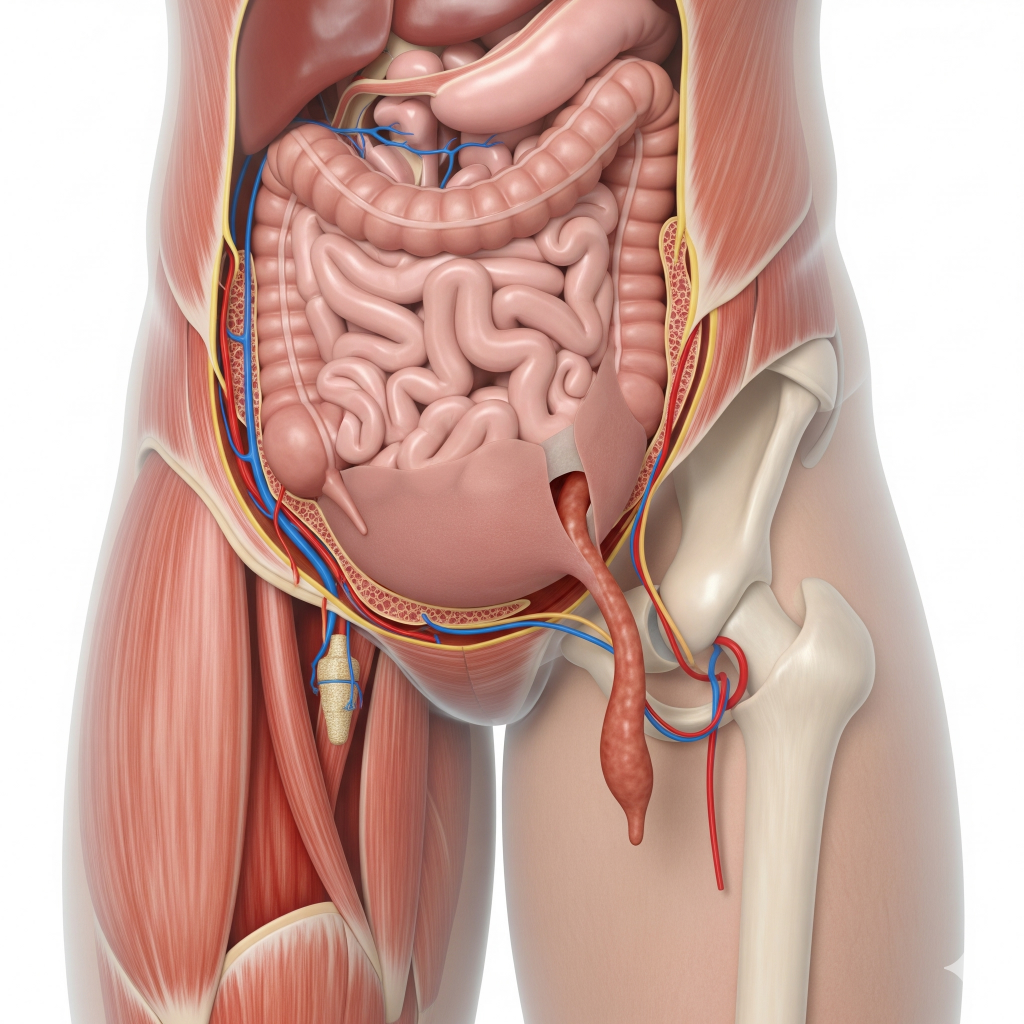An inguinal hernia is a common medical condition that occurs when a portion of the intestines or fatty tissue pushes through a weak spot in the lower abdominal wall, creating a noticeable bulge in the groin area. While many people may live with a hernia for some time with minimal discomfort, its potential effects on health, from everyday pain to life-threatening complications, underscore the importance of proper diagnosis and care.
The Health Effects of Inguinal Hernias

The symptoms and health impacts of an inguinal hernia can range from mild to severe, depending on the size of the hernia and whether it becomes incarcerated or strangulated.
- Pain and Discomfort: The most common effect is a feeling of pain, discomfort, or a “heavy” sensation in the groin. This pain often worsens when you cough, bend over, lift heavy objects, or stand for long periods. For men, a large hernia can extend into the scrotum, causing swelling and pain in the testicles. The discomfort can interfere with daily activities, work, and even exercise.
- Incarcerated Hernia: A more serious complication occurs when the protruding tissue becomes trapped in the abdominal wall and cannot be pushed back in. This is known as an incarcerated hernia. It’s a painful condition that can lead to a bowel obstruction, causing severe abdominal pain, nausea, vomiting, and an inability to pass gas or have a bowel movement. An incarcerated hernia requires immediate medical attention.
- Strangulated Hernia: The most dangerous complication is a strangulated hernia. This happens when the blood supply to the trapped tissue is cut off. Lack of blood flow can cause the tissue to die, a condition called necrosis, which can lead to a serious, life-threatening infection. Symptoms include sudden and worsening pain, a hernia bulge that turns red, purple, or dark, and fever. A strangulated hernia is a medical emergency that requires immediate surgery.
- Impact on Sexual Health: While a hernia itself generally doesn’t affect fertility, a large hernia can cause pain during sexual activity. In some cases, a small percentage of patients may experience sexual dysfunction after surgery due to nerve damage, though this is rare and often improves over time.
Diagnosis and Treatment
A physical exam is the primary way a doctor diagnoses an inguinal hernia. The doctor will look for and feel the bulge in the groin, and may ask you to cough or strain, which makes the hernia more prominent.
Treatment for a hernia depends on its size and symptoms. A small, asymptomatic hernia might be monitored with a “watch and wait” approach. However, most hernias will eventually require surgery, especially if they are painful or getting larger. The two main types of surgical repair are:
- Open Hernia Repair: This involves a single incision in the groin, where the surgeon pushes the tissue back into place and reinforces the abdominal wall, often with a synthetic mesh.
- Laparoscopic (Minimally Invasive) Repair: The surgeon makes several small incisions and uses a laparoscope (a small camera) and tiny instruments to repair the hernia from the inside. This method often results in less pain and a quicker recovery time.
Leave a Reply